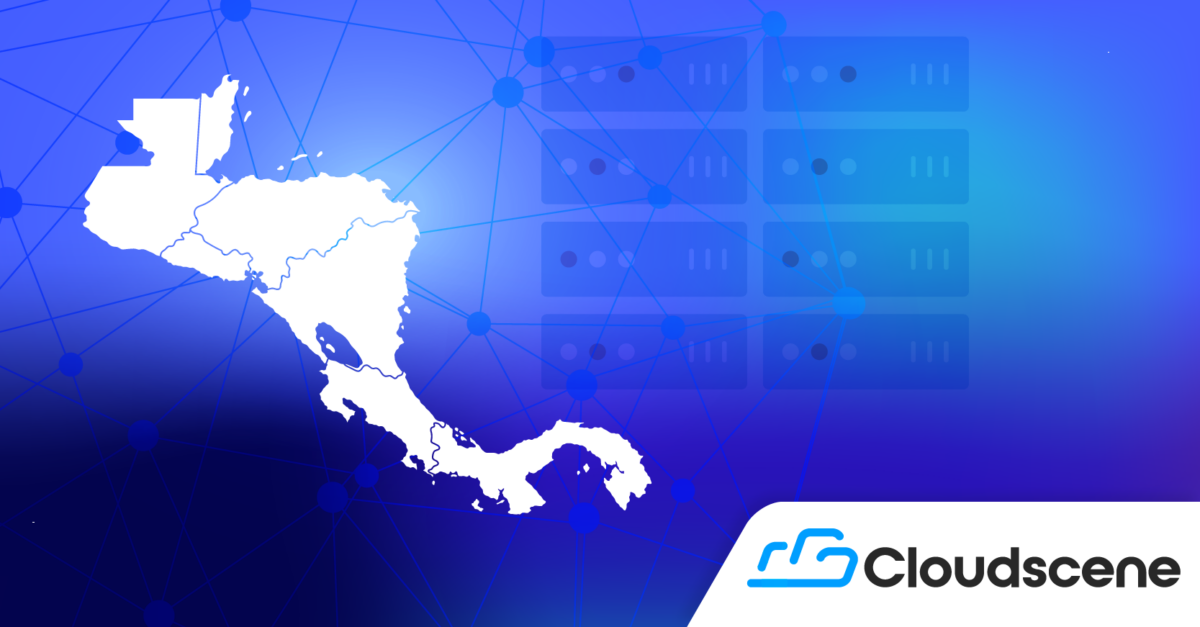The Rise of Costa Rica: A Sustainable Telecommunications Hub for Central America with ADN Datacenters’ Luis Carlos Rojas
The telecommunications sector in Costa Rica has witnessed various degrees of growth and decline over the last ten years but is now seen to be one of the most developed markets in Central America.
Also in its recent history, Costa Rica has made a name for itself as an enthusiastic adopter of sustainable development and clean energy solutions, and we have seen this bleed into the operations of much industry activity.
To take a closer look at the Costa Rican telecom market and how it supports customers and the country’s push for sustainability, ADN Datacenters’ CEO, Luis Carlo Rojas, shares his insights into the market landscape, key demands of data center consumers in Costa Rica, and how a clean energy focus is causing a behavioral shift when it comes to colocation.
A growing market for telecommunications
Costa Rica has undergone major development in recent decades, and so too has its telecommunications sector.
Ten to fifteen years ago, the data center industry started to witness significant growth across the country, and ADN Datacenters were pioneers in this space with 20 years in the market, according to Luis Carlos Rojas, CEO, ADN Datacenters.
Situated in the middle of the Americas, Costa Rica now has connectivity across the Caribbean Sea and the Pacific Ocean, and land connectivity to Panama, Central America, and Mexico.
“Costa Rica is currently a hub of global companies with shared service centers operating with Costa Rican talent,” says Rojas.
“Global companies, including Amazon and HP, are already well-established here with thousands of people working in their shared services centers. Global companies and one of the Top 10 Fortune 500 companies are now running in our data center, which is enabling multiple connectivity options to anywhere in the world,” he says.
Several initiatives of the Costa Rican government have spurred on market growth in the telecommunications sector more recently, enabling industry players to expand their operations in ways they otherwise couldn’t have.
For example, the free zone regime in Costa Rica provides an avenue for companies to expand globally, take advantage of economies of scale, and benefit from tax incentives.
For ADN Datacenters, this regime has meant that they can receive equipment from clients from anywhere in the world, tax-free – a pretty substantial incentive to engage more customers when, now, it can be done without the added expense.
Facilitating key demands for colocation and interconnection services
Rojas tells us that the needs of consumers in the Costa Rican data center market are extensive and diverse and that there is a range of offerings that seek to capture these needs across the industry.
“The demands that clients most typically seek to cover include security, availability, confidentiality, continuity, and trust,” Rojas says.
And with ADN’s Tier III data center being the first and only one with ISO 27001 Information Security Certification of its Colocation Service in the Central American market, many businesses are attracted to this offering as it boasts the greatest level and assurance of security and data protection.
In terms of providing the availability and continuity that many data center customers demand in this market, Costa Rica’s eighteen Uptime Institute-certified colocation facilities do most of the heavy lifting.
All but one of these facilities are of either Tier III or Tier IV standard, which can allow for as little as 48 minutes of downtime per year, providing customers with the continuity and reliability they seek from a colocation offering.
ADN Datacenters’ Tier III certified facility is one that provides 100% uptime, despite its certification, and has done so for the last ten years, according to Rojas.
“Rather than running one hot circuit and one cold (which is the usual operation for redundancy), we have both of our circuits working all the time…” he says, “…which is a Tier IV characteristic.”
ADN Datacenters also hosts two power units in each data center power path of its facility, despite the requirement for a Tier III facility to only host one per power path, “…which means there can be an outage of up to 48 hours without affecting our customers or their network needs,” Rojas says.
Supporting the nationwide push for sustainability and clean energy
Since 2014, Costa Rica has generated almost 99% of its electricity from renewable sources by utilizing its rivers, volcanoes, wind, and solar power, so it’s safe to say they’re well ahead of the game when it comes to clean energy and sustainable practice.
They rank just behind Iceland and Paraguay in terms of renewable energy production, according to data compiled by the U.S. Energy Information Administration, and with a nationwide goal to become completely carbon neutral by 2021, it’s inevitable that Costa Rica’s focus on sustainable energy is having a major impact on the data center industry and how it operates.
“Renewable energy is creating a shift in the minds of data center customers and service providers in Costa Rica, and it is a great opportunity for our industry,” Rojas says.
“Many customers consume dirty energy in their own or in third-party data centers, but Costa Rica providers, like ADN Datacenters, offer the opportunity to move these loads to the data centers located in our country and automatically convert them into clean energy,” he says.
“We’ve made this possible by investing in chillers, which are cooling systems that require less energy and are better for the environment as they use water,” Rojas says. “We also have very efficient systems that boast a power factor of 1, which has improved since our early days when this factor sat between 0.93 and 0.96.”
Developing demand for edge technology and data centers
With Costa Rica’s hold on sustainability and all things green, it’s no surprise that global eco-conscious companies are now flocking to the region to operate their systems.
But with this comes a whole new demand for low latency.
“Less than ten milliseconds of latency is what is expected, so the edge is going to be more and more important during the coming years,” Rojas says.
Rojas also foresees the importance of erecting more data centers in and around Costa Rica to support the workloads of global companies who are increasingly attracted to what the country has to offer.
“Because we’re connected through oceans, connected to Panama by land and connected through Central America to Mexico, Costa Rica is a prime location for more data centers because we can cover Central America and part of LATAM,” Rojas says.
With this, customers with workloads in Costa Rican facilities will be able to experience far lower latency while reaping the environmental benefits of operating in the country.
Ultimately, it’s more than likely that Costa Rica’s environmental bedrock will attract more data center users who, too, are conscious of their footprint and are eager to find ways to reduce their impact. As a result, the Costa Rican data center market will surely thrive as more people discover the value that lies within it.

Contributor – Luis Carlos Rojas Kruse – Founder & CEO de ADN Datacenters
Mr. Rojas is Founder and CEO of ADN Datacenters, a leading company in integrated technology, Colocation and Cloud services with world-class Tier III certified infrastructure and the first ISO27001 certified data center in Costa Rica. With a team of experts that adds value to its clients in an agile, flexible and reliable way.
The company has 20 years of experience and more than 200 satisfied clients in Latin America and other countries.
Mr. Rojas has a Master’s Degree in Business Administration. graduated from INCAE Business School, and has more than 23 years of experience in business management and administration. He is a member of the INCAE Business School mentor network. In addition, he is passionate about Triathlon.
